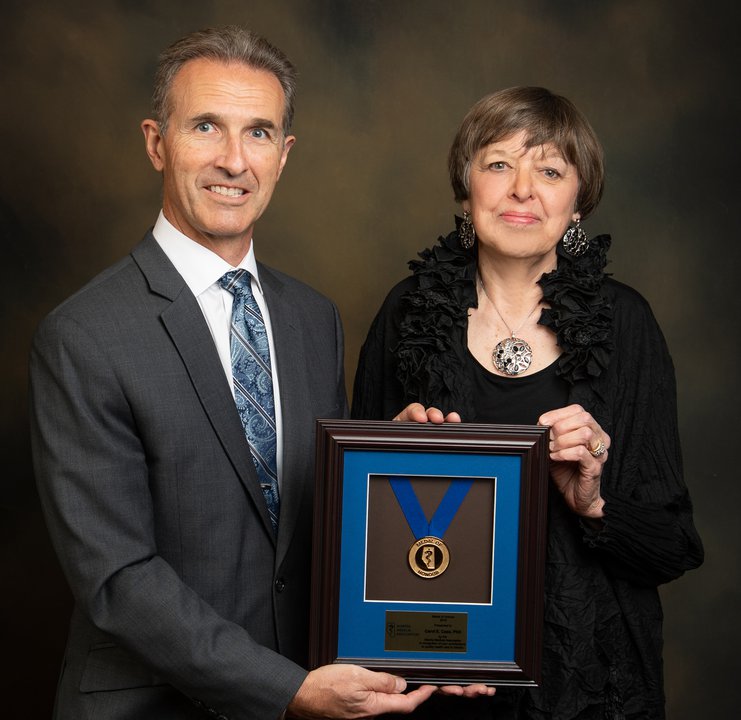
It is hard to overestimate the importance of Carol Cass’s contributions to the advancement of medical research, medical education, and health care organizations. During her 41-year career at the University of Alberta, she produced award-winning and ground-breaking cancer research and provided vital academic leadership as the inaugural chair of the Department of Oncology in the Faculty of Medicine and Dentistry, in addition to her clinical leadership as associate director of research and then as the first non-physician (and the first female) director of the Cross Cancer Institute, Edmonton’s tertiary care cancer hospital.
She earned a BSc and an MSc in zoology from the University of Oklahoma. Her growing interest in the newly emerging field of cell biology led her to undertake her PhD program at the University of California, Berkeley, which had in the 1960s one of the few programs in cell biology in North America. She first came to the U of A as a postdoctoral fellow in 1970. Throughout her long career, Dr. Cass has pursued a multifaceted research program that consistently linked fundamental discoveries about the nature of nucleoside transport processes to their role in nucleoside biology and pharmacology. She provided the intellectual foundation and many of the tools needed to move our understanding of the role of nucleoside transporters in nucleoside biology and pharmacology in human cells to a new level.
Although the Faculty of Medicine and Dentistry at the U of A is more than a century old, it had no Department of Oncology until 1993, when it was created to provide a focused academic home for professional staff at the Cross Cancer Institute who were participating in extensive oncology teaching and research but whose primary academic appointments were distributed across the faculty. Dean Lorne Tyrrell recruited Dr. Cass to become the inaugural chair of the department with the mandate to develop processes and governance structures that adhered to faculty and university policies but were also integrated into the administrative structure of the Cross Cancer Institute. When she started, the department was little more than an empty office. When she finished in 2007, it was a mature, well-established academic department, the third largest in the faculty, with a strong national and international reputation for its training programs and its research. It is hard to imagine how that could have happened without Dr. Cass’s leadership.
At the Cross Cancer Institute, she led efforts to create state-of-the-art multiuser research facilities, such as the first cell imaging facility in Alberta, to develop processes for administration of the institute’s multiuser facilities, to enhance the ability of its investigators to acquire and manage competitive research funding, and to recruit outstanding new researchers. As director, she expanded the institute’s clinical trials capacity and activity, providing cancer patients in Alberta with earlier access to novel treatments and improved outcomes of standard treatments. Through the turmoil caused by massive organizational change, Dr. Cass’s leadership was key to preserving the culture of the Cross Cancer Institute that underpins its reputation for excellent and compassionate care.
Dr. Cass has played a leading role in Canadian cancer research, and she was a trailblazer for women in the sciences. Patients, colleagues, researchers, doctors, students: all have reason to be grateful for her work.